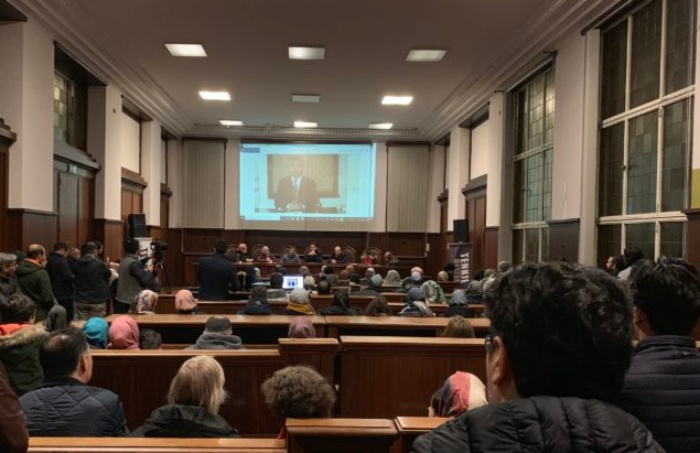The Purge Museum, an initiative that collects and exhibits items belonging to individuals who survived Turkey’s massive crackdown on the Gülen movement, has opened in the Belgian city of Hasselt.
The museum, situated in the old courthouse building in Limburg on Nov. 1, will run until Nov. 10.
During the opening program, some victims of the purge told their stories, bringing many in the audience to tears. A teenage girl named Zeynep talked about how she had to walk for 12 kilometers on her prosthetic legs to make her way to Greece with her family when they fled the purge.
The Turkish government accuses the Gülen movement of masterminding a failed coup on July 15, 2016 and labels it a “terrorist organization,” although the movement strongly denies involvement in the coup attempt or any terrorist activity.
Following the coup attempt, the Turkish government launched a massive crackdown on followers of the movement under the pretext of an anti-coup fight as a result of which more than 150,000 people were removed from state jobs while in excess of 30,000 others were jailed and some 600,000 people have been investigated on allegations of terrorism.
More than 800 children under the age of 6 are accompanying their mothers in prison and live in poor conditions.
A purged teacher named Rana, who was jailed when her baby was one month old, got emotional when she talked about her days in prison during the museum’s inauguration in Hasselt. She said purged doctors who shared the same cell with her treated her baby when the baby fell in prison and could not be treated on the outside.
The Purge Museum, “Tenkil Müzesi” in Turkish, was launched months ago in Germany by a group of refugees who fled Turkey after the coup and have been collecting objects from victims ever since. The museum first opened for a four-day run in Brussels in April, attracting a large number of visitors.
Among the items on display are the broken eyeglasses of Gökhan Açıkkollu, a purged teacher who died in detention after the coup from the torture and ill treatment he was subjected to; several items of clothing that were damaged during rough interrogations; baby clothes that were worn in Turkish prisons; and a number of articles that were used during the dangerous trip from Turkey to Greece across the Evros River.
Overall the objects depict the horror and cruelty of detention and restrictions and a longing for loved ones in prison, the dangers of fleeing Turkey and new beginnings in a strange country.
